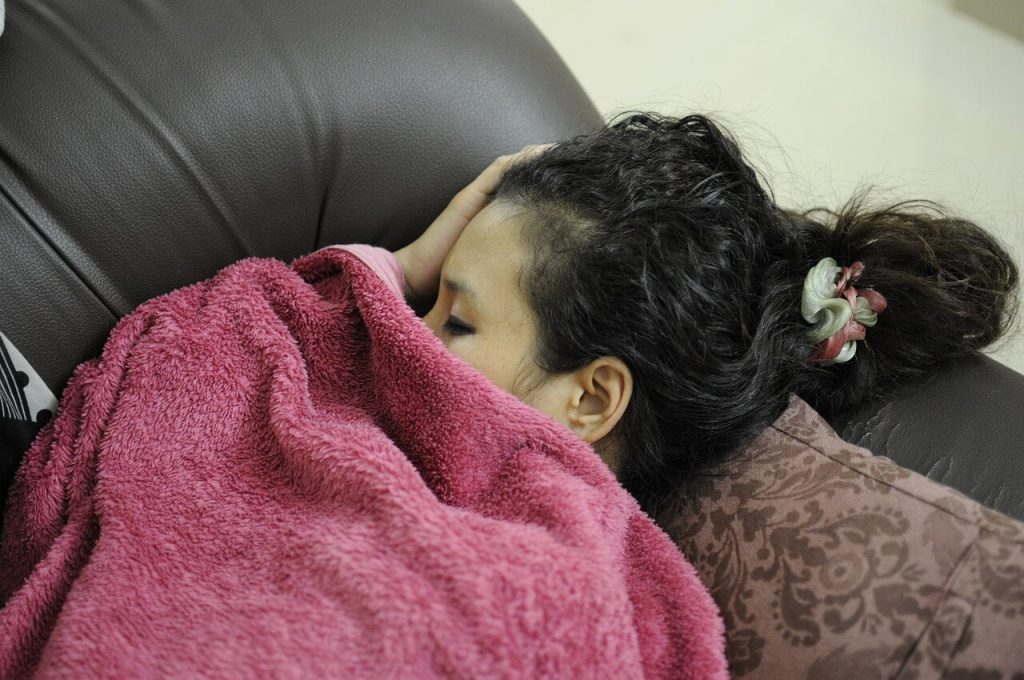For individuals with Hidradenitis Suppurativa (HS), symptoms like itching and pain can disrupt sleep. A healthy lifestyle, including regular physical activity and a balanced diet, is crucial for managing HS. Likewise, prioritizing quality sleep is vital, especially when dealing with a chronic condition like HS. Explore Hidradenitis Suppurativa wound care tips to improve sleep and enhance overall well-being. Discover strategies to alleviate symptoms and promote a restful night’s sleep, contributing to better management of HS and improved quality of life.

What’s Hidradenitis Suppurativa (HS)?
Hidradenitis Suppurativa (HS) is a long-term skin condition that causes painful, inflamed bumps or lesions in the areas of the body where skin rubs together. It is commonly found under the arms and behind the knees but can appear anywhere on your body. Symptoms include itchiness, pain, and drainage from the bumps or lesions. Poor sleep is a common symptom of HS due to chronic pain and itching, which is why it’s crucial to learn various Hidradenitis Suppurativa wound care tips.
Hidradenitis Suppurativa Wound Care Tips
HS can be a physically and emotionally draining condition and can significantly impact a person’s sleep. The pain and discomfort associated with HS can make it difficult to fall asleep or stay asleep. The presence of abscesses and infected bumps may also lead to itching and discomfort, which can further disrupt sleep.
In addition to the physical symptoms of HS, the emotional toll of living with the condition can also contribute to sleep disruption. HS can be a socially isolating condition, as the bumps and abscesses can be unsightly and may cause embarrassment or discomfort in social situations. This social isolation, along with the chronic nature of the condition, can lead to feelings of depression and anxiety, which can further disrupt sleep.
The good news is that there are several strategies you can try to manage your Hidradenitis Suppurativa symptoms and improve your sleep. Here are some tips to get you started. Here are some tips to help you manage your HS symptoms and get better sleep.
Tips to Improve Sleep:
- Use cool or warm compresses: Applying a cool or warm compress to the affected area for about 10 minutes may help ease pain and discomfort. Experiment with both to see which works best for you.
- Try a hot tea bag: Boil water and pour it over a tea bag in a cup. Let the tea bag sit in hot water for a minute. Then take the tea bag out and put it on the painful area for about 10 minutes. This can help reduce inflammation and soothe the skin.
- Take pain relievers: Talk to your doctor about the most appropriate pain reliever for your needs. Over-the-counter options such as acetaminophen or ibuprofen may be helpful, but be sure to follow the recommended dosage instructions.
- Use Hidradenitis Suppurativa treatments: There are several treatment options available for HS, including topical medications, antibiotics, and surgery. Work with your doctor to determine the best treatment plan for you.
- Practice stress management techniques: Stress and anxiety can exacerbate Hidradenitis Suppurativa symptoms, so finding ways to manage stress can be helpful in improving sleep. Consider trying relaxation techniques such as deep breathing, meditation, or yoga.
- Create a sleep-friendly environment: To get the best sleep possible, it’s essential to create a room that is cool, dark, and quiet. Avoid using light-emitting screens (such as smartphones and laptops) before bedtime, and consider using room-darkening shades, earplugs, or a fan to create a peaceful environment.
- Avoid caffeine, nicotine, and alcohol before bedtime: These substances can stimulate the brain and make it more difficult to fall asleep. Try to avoid consuming them in the hours leading up to bedtime.
- Exercise regularly: Regular physical activity can help improve sleep quality, but it’s important to avoid vigorous exercise too close to bedtime. Aim to get at least 30 minutes of moderate-intensity exercise most days of the week.

Seek a Specialist’s Help
As mentioned earlier, HS can be a physically and emotionally draining condition that significantly impacts a person’s quality of life. It is essential to seek treatment for HS in order to manage the symptoms and improve the quality of life. Here are a few reasons why you should consult with a specialist if you have HS:
- Early diagnosis and treatment can improve outcomes: HS can progress over time, leading to more extensive scarring and the development of sinus tracts. Early diagnosis and treatment can help prevent the condition from worsening and can improve long-term outcomes. Therefore, people with Hidradenitis Suppurativa should seek medical attention early enough.
- Specialists have Hidradenitis Suppurativa wound care expertise: HS is a complex condition that requires specialized knowledge and experience to manage effectively. A specialist, such as a dermatologist or a plastic surgeon, has the expertise and experience to diagnose and treat HS. He or she can also offer Hidradenitis Suppurativa wound care tips for a good night’s sleep.
- HS experts can provide a comprehensive treatment plan: HS requires a multifaceted approach to treatment. A specialist can work with you to develop a treatment plan that includes medications, lifestyle modifications, Hidradenitis Suppurativa wound care, and other therapies to manage your symptoms.
- Specialists in HS can address both physical and emotional aspects of HS: In addition to the physical symptoms of HS, the emotional toll of living with the condition can also be significant. A specialist can address both the physical (Hidradenitis Suppurativa wound care) and emotional aspects of HS and can provide support and resources to help you cope with the challenges of the condition.
- HS specialists can coordinate care with other healthcare providers: HS can sometimes be associated with other medical conditions, such as Crohn’s disease or obesity. A specialist can coordinate care with other healthcare providers to ensure that you receive comprehensive and coordinated care.
Final Thoughts
If you’re struggling to get a good night’s sleep despite trying these strategies, it may be helpful to talk to your doctor. They can help identify and treat any underlying causes of your symptoms and suggest additional treatment options. Remember, getting enough quality sleep is essential for managing a chronic condition like Hidradenitis Suppurativa, so don’t hesitate to reach out for help if you need it.
